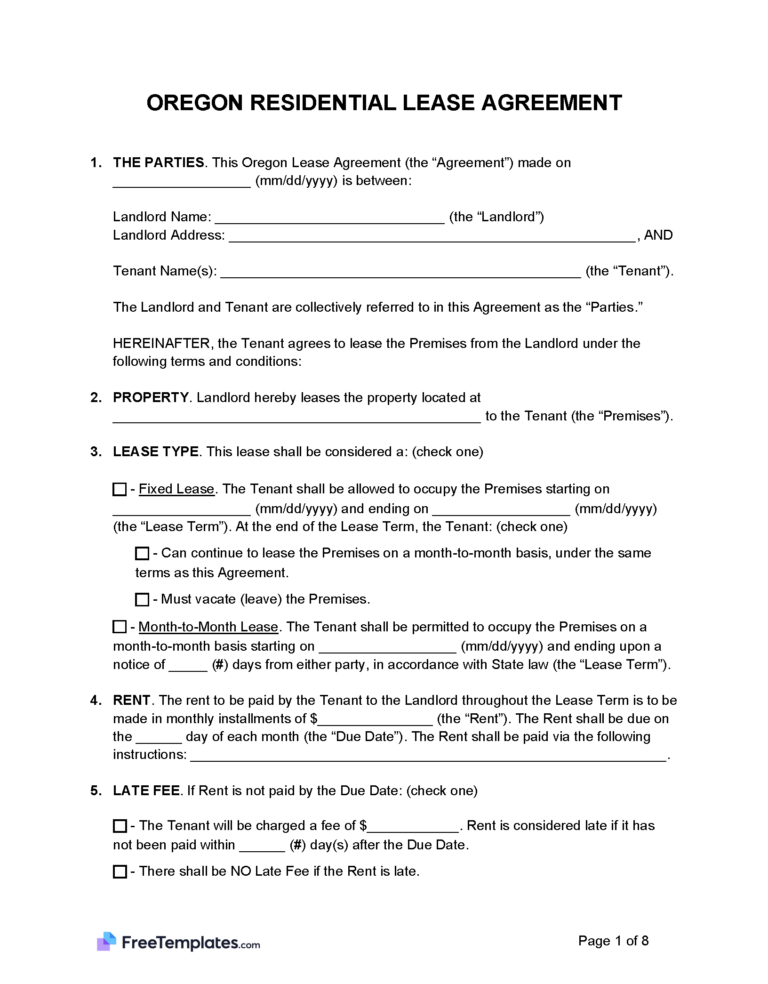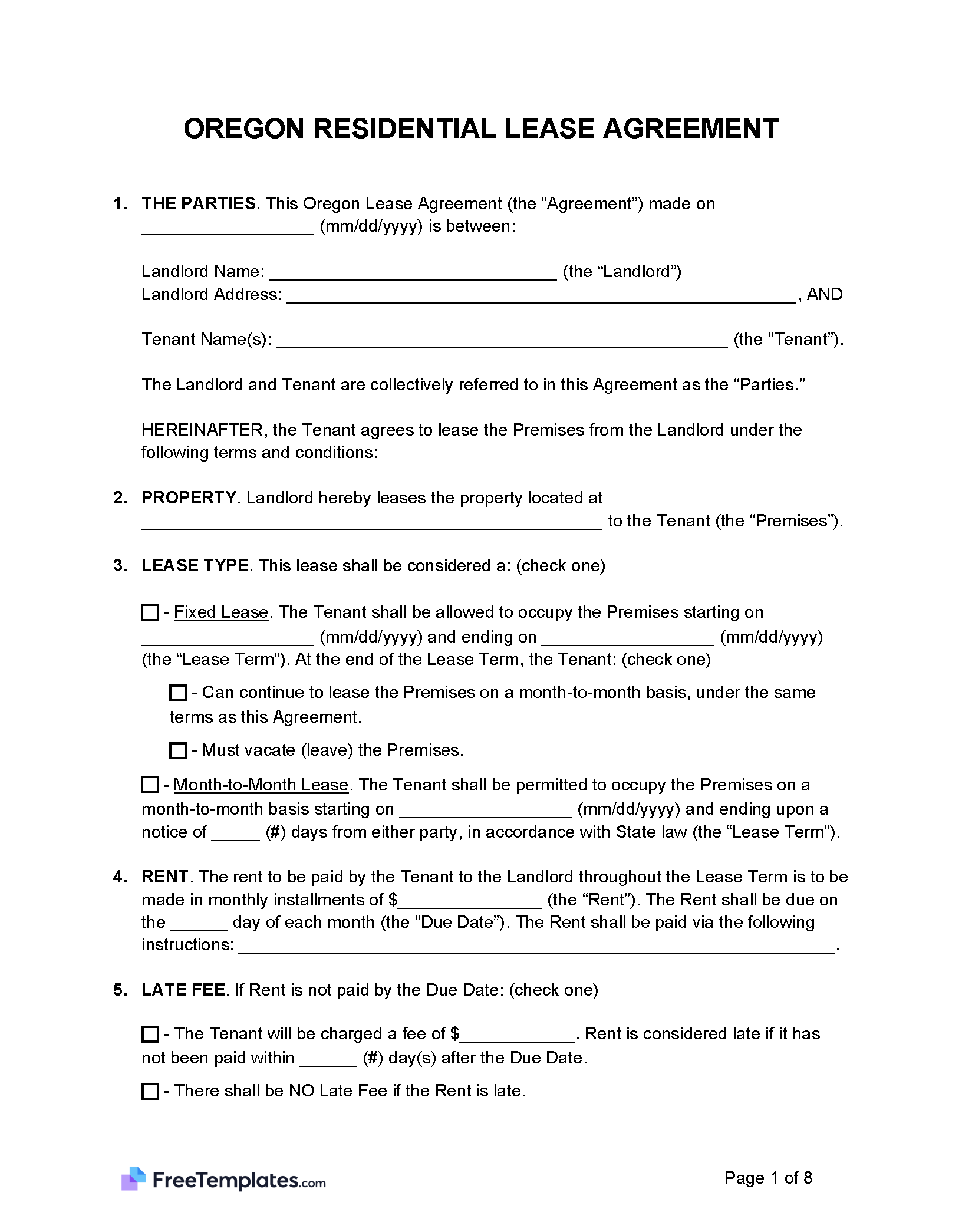By Type (6)
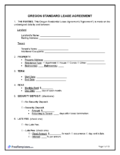 Standard Lease Agreement – Typically used for 12-month residential leases, this property rental contract is legally binding. Standard Lease Agreement – Typically used for 12-month residential leases, this property rental contract is legally binding.
|
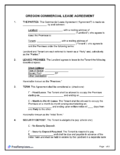 Commercial Lease Agreement – Commonly used for a business to rent a property for office, retail, or industrial space. Commercial Lease Agreement – Commonly used for a business to rent a property for office, retail, or industrial space.
|
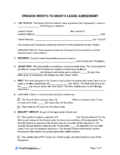 Month-to-Month Lease Agreement – Also known as “tenancy-at-will,” this lease restarts monthly and can be terminated by either party with a 30-day notice. Month-to-Month Lease Agreement – Also known as “tenancy-at-will,” this lease restarts monthly and can be terminated by either party with a 30-day notice.
|
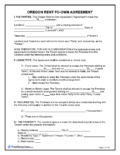 Rent-to-Own Agreement – This is Similar to a standard lease, with the added language that the tenant purchases the property from the owner. Rent-to-Own Agreement – This is Similar to a standard lease, with the added language that the tenant purchases the property from the owner.
|
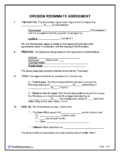 Roommate Agreement – When two individuals share a rented property, this agreement states their duties and responsibilities. Roommate Agreement – When two individuals share a rented property, this agreement states their duties and responsibilities.
|
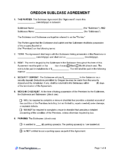 Sublease Agreement – Typically approved by the landlord, this is used when a renter tries to re-rent their space to another individual. Sublease Agreement – Typically approved by the landlord, this is used when a renter tries to re-rent their space to another individual.
|
Disclosures (10)
Addendum Regarding Written Notices – If a landlord wants to notify the tenant via email instead of writing, it must be disclosed and agreed upon in the lease agreement. (ORS 90.155)
Carbon Monoxide Alarms (conditional) – If a source could create carbon monoxide on the property, then the landlord must provide carbon monoxide alarms. (§ 90.317(2))
Flood Plain (conditional) – The landlord must disclose whether the property is located in a 100-year Floodplain area. (§ 90.228(2))
Landlord’s Contact Details – The name and address of the property manager must be made available to the tenant. (ORS 90.305(1))
Lead-Based Paint Disclosure – The landlord of any building built before 1978 must notify tenants of possible lead-based paint on the premises and provide a disclosure when signing the lease agreement.
Move-in Checklist (Portland only) – Tenants must receive a move-in checklist from the landlord within 7 days of the lease’s start date. (§ 30.01.087(D)(1))
Recycling (urban) – For multi-family units of 5 or more, the landlord must provide recycling receptacles and inform the tenant of recycling instructions. The landlord is also expected to provide their tenants with information regarding the recycling system on the premises once a year. (§ 90.318(c))
Security Deposit Receipt – The security deposit amount must be listed on the lease agreement (ORS 90.300(3),) and a receipt must be given after the tenant pays. (ORS 90.300(2)(a))
- Portland Only – The tenant must receive a receipt of the security deposit payment within 2 weeks. The tenant must know the bank’s name and address where the security deposit is held. (§ 30.01.087(B)(1))
Smoking Policy – The smoking policy of the rental property must be clearly outlined in the original lease agreement. (§§ 90.220(4), 479.305)
Utility/Service Fees – If the landlord or other tenants receive utilities that the renter pays for, this must be disclosed in the lease agreement. (ORS 90.315(2))
Security Deposit
Maximum Amount – There is no maximum amount a landlord may charge for a security deposit.
- City of Portland Only – The landlord may charge half of one month’s rent as an additional security deposit for a tenant who prepays the last month’s rent. If the tenant does not prepay the last month’s rent, then they may be charged up to one month’s rent for the security deposit. (§ 30.01.087(A))
Returning to Tenant – The landlord is responsible for returning the security deposit to the tenant within 31 days of the lease’s end. (§ 90.300(13))
Itemized List Required? If the security deposit is deducted, the landlord must provide the tenant with a list of all the damages within 31 days of the lease’s end. (§ 90.300(12))
Separate bank Account? – No, the landlord does not need to keep the security deposit in a separate bank account.
- City of Portland Only – A security deposit must be kept in a bank account that is not personal. (§ 30.01.087(B)(1))
Landlord Access
Emergency Access – In an emergency, the landlord can enter the property without the tenant’s permission to remedy a repair or similar issue. The landlord must notify the tenant within 24 hours after they enter the property. (ORS 90.322(1)(b))
General Access – A landlord may gain access to their renter property only after they give a 24-hour notice and for non-emergencies. (ORS 90.322(1)(f))
Paying Rent
Grace Period – In Oregon, there is a 4-day grace period during which the tenant may not be charged a late fee. () On the 5th day, if the rent has still not been paid, the landlord may serve them a 10- or 13-day notice of non-payment. (ORS 90.394(2))
Maximum Late Fee – Oregon law states that a landlord may charge a “reasonable” late fee for delayed payment.
- A one-time fee is charged for the per rental period
- A daily fee that is up to 6% of the flat fee
- A fee of 5% of the monthly rent is charged every 5 days.
Returned Checks (NSF) – The landlord may charge a tenant who writes a bad rent check a maximum $35 fee. (ORS 30.701(5))
Withholding Rent – After notifying the landlord that the rental property has a needed repair and is not fixed, the tenant has a right to fix it themselves and deduct up to $300 from their next rental payment. (ORS 90.368(2))
Reasons for Eviction (3)
Non-Payment of Rent – Landlords have three options to notify the tenant to pay or quit. (§ 90.394(1))
- 10-day notice to pay or quit served after the 7th day that rent due is late.
- 13-day notice to pay or quit served after the 4th day that rent due is late.
- 72-hour notice to pay or quit served after the 4th day that rent due is late. (For week-to-week tenancy)
Non-Compliance – If a tenant violates the lease agreement, they may be served a 30-day notice to quit or comply. The tenant will be given 14 days to comply. (§ 90.392(5)(a))
Lockouts – A court order is mandatory for tenants to be locked out of their rental units. It is also unlawful to try to remove the tenant without approval. (§ 90.375)
Leaving Before the End Date – If a tenant abandons their rental unit, they will owe the total rent due until the lease agreement expires. A landlord can re-rent the unit if it is left abandoned to lessen their losses. (§ 90.410)
